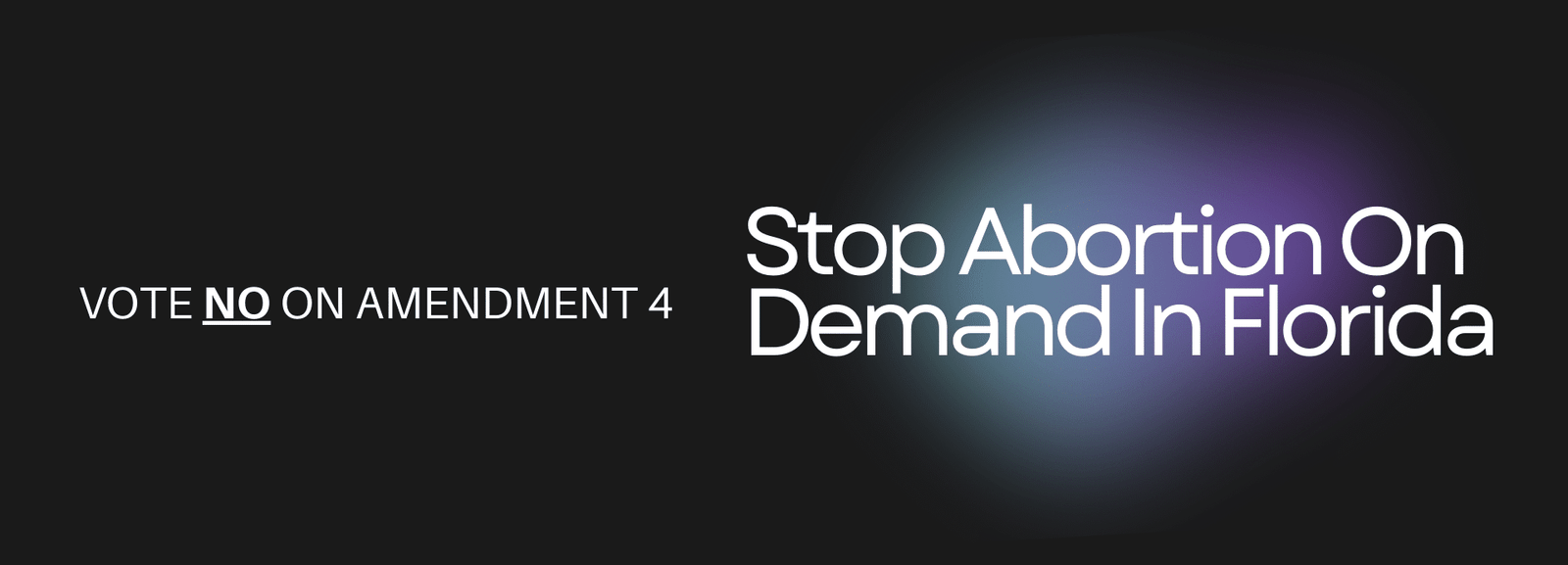Knowing how and when to talk to your children about sensitive issues is not an exact science, but we better figure it out quickly. While we contemplate the best way to do it, our little ones are being taught by someone else. The internet, social media, and public education have changed the rules of the game. With that in mind, here are four practical suggestions for parents and church leaders on how to get ahead of the issue and instruct your children about abortion.
1. START EARLY.
Parents always struggle with “how soon do I allow my children to see the brokenness in the world?” My wife, Terri, and I err on the side of sooner rather than later. This might seem to risk exposing them before they are ready. But I want the first time my children are horrified by the brokenness of our world to be in the safety of our company and in the context of the Gospel. Besides, I would be foolish to think I can keep the filth away in the tech age. It will find them. My children need to be ready for when they encounter the darkness. That means letting them know it exists.
This does not mean that we force the issue, though. An effective way to be proactive but not overbearing is to gently use questions to bring up sensitive subjects. The way I broached abortion with my oldest daughter (she was seven then) was by asking her if she knew why I went on a recent trip to England. She said, “To speak.” I said, “Yep. I went to speak about abortion. Have you heard that word before?” She shook her head “no.” I left it there. One minute later, she asked what it meant, and we had a fantastic conversation.
Good teaching requires knowing your children’s knowledge and assumptions. Bad teachers lecture and then patronizingly ask, “Does that make sense?” Do not do this with your children. Instead, ask your children questions to find out where they are on abortion. Are they oblivious, disinterested, or already educated? Find out.
Asking questions also allows for self-discovery. You would be amazed at the insight of seven-year-olds. They are already making sense of the world. They are forming their moral framework. When asked a question about abortion, children often know what to think of it.
Click to see how Apologetics, Inc. is fighting for life
2. SIMPLIFY THE ISSUE.
Children, and adults for that matter, are confused about the pro-life position. We must simplify the issue. People need to know that we are pro-life because we believe it is wrong to intentionally kill an innocent human being. Abortion is the intentional killing of an innocent human being. Therefore, we believe abortion is wrong.
Children also need to know the reasons that support this belief. They need to understand that along with scripture, we are pro-life because science and philosophy direct us to be. Science informs us that from the earliest stages of development the unborn are distinct, living, and whole human beings. Philosophically, we understand that there is nothing morally significant in the difference between an embryo and an adult that would justify killing the unborn. Differences in size, level of development, environment, and degree of dependency are not good reasons to kill the unborn.1
The case for life is reasonable, rational, and remarkably simple. Children quickly grasp it. Use questions to simplify the issue and explain the science and philosophy that support our position. Here are some questions you can use.
- “Is it okay to kill innocent human beings?”
- “Are unborn babies human, and if not, what are they?”
- “Would it be okay to kill unborn babies because they are smaller, not aware of themselves, dependent on their mom for survival, or living in the womb?”
- “Are humans valuable because of what they can do, like being self-aware and able to care for themselves; or are they valuable because of what they are—a human being?”
- “What might happen if we start believing that people are valuable because of what they can do and not because of what they are?”
- “If unborn babies are valuable because of what they are and not what they do, what should we do for them?”
3. ENCOURAGE PASTORS TO TALK ABOUT IT FROM THE PULPIT.
I understand that many pastors do not want the controversy that might accompany speaking on a social issue, but neutrality is not an option when it comes to abortion. Children are very observant. When the church is silent on abortion, one of two things is communicated to them—either that abortion is permissible or that it is unforgivable. Both positions are false.
The sin of abortion is a horrific offense for which the blood of Jesus Christ is sufficient. People in our congregation need to hear both that abortion is wrong and that there is mercy, forgiveness, and healing for those who have participated in one. When the pastor helps people see abortion through the lens of the gospel, it gives people permission to share their stories and find freedom and care.
When the pulpit addresses abortion, it also shows the relevance of Christianity to our children. It demonstrates that the Gospel speaks to all of life. Our children often wonder what Christianity means for the other days of the week and the issues they encounter in “real life.” Providing compassion and moral guidance on important topics like abortion shows the comprehensiveness and goodness of the Christian worldview.
4. CARE FOR THOSE AFFECTED BY ABORTION.
Training our children to be pro-life does not mean that we only equip them with arguments. We want them to serve. Whether this means that they volunteer at a local pregnancy resource center or show compassion to their friends who have had an abortion, loving actions must accompany winsome words.
You can serve as a family or a church family. Once, my church’s youth group served our local pregnancy resource center by doing odd jobs for them. Our youth painted, cleaned up the grounds, folded clothes, and many other things. They also were given a short presentation by the director, educating them on what the pregnancy resource center did for women. Many of our kids had no idea what pregnancy resources were or what they did. This experience opened their eyes to the compassion in the pro-life movement and the reality of abortion in a way that words never could.
Parents and church leaders, we must be motivated. Children are usually ready for more than we give them. Knowing when they are prepared for something is not always obvious, but I would rather make a mistake of addressing something too early rather than too late or never getting around to it at all. So, start early and teach the simple pro-life message in the home and the church. In this way we can show the compassion that springs from the love of our Lord.
Become a monthly partner and help protect unborn children.

Michael C. Sherrard
Michael C. Sherrard is the president of Apologetics, Inc., the author of Why You Matter and Relational Apologetics, and faculty at Summit Ministries.
References:
1 For a very concise summary of the pro-life position, see Scott Klusendorf, “How to Defend Your Pro-Life Views in 5 Minutes or Less,” July 16, 2018, https://prolifetraining.com/pro-lifer/how-to-defend-your-pro-life-views-in-5-minutes-or-less/.



1 thought on “How do I explain the difficult issue of abortion to my children?”
Loved this article! Wish I could have shared it but couldn’t find the share.